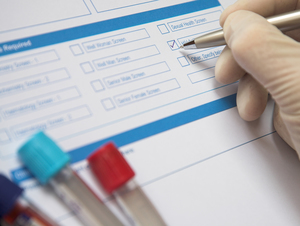I am a 31 year old female and my calcium level just came back at 10.4. My albumin and chloride were also slightly elevated. Should I be worried about parathyroid or what next steps should I take as precaution? I'm on 5000 units daily of Vitamin D3.


At your age, a calcium of 10.4 mg/dl is borderline. Adults in their 30s can have calcium levels in the low 10s, which will tend to drop down into the 9s as they get older. A calcium of 10.4 is on the highest end of where I would expect your calcium levels to be at your age.
I am concerned about your dose of Vitamin D. 5000 units daily is a lot, and if you have been on that dose for a long time then it can cause your calcium to rise into the high range. If your Vitamin D 25-OH level is also high (above 50 ng/ml) then this may be the reason for your calcium level. One of the main roles for Vitamin D is to help your intestines absorb calcium. Since your calcium is already on the high end, I would not recommend taking so much Vitamin D.
To diagnose parathyroid disease, we need to see calcium and PTH levels. And in your case, I would also want to see your Vitamin D level. It also helps to have past calcium levels, to see if they have changed over time. If your Vitamin D is low, but your calcium is 10.4 and your PTH is in the high or high-normal range, then you likely have parathyroid disease. With borderline cases, the more results we can review, the better.
A slightly elevated albumin is usually normal. While parathyroid disease can cause a mild elevation in chloride levels, we don’t currently use chloride to diagnose primary hyperparathyroidism.



